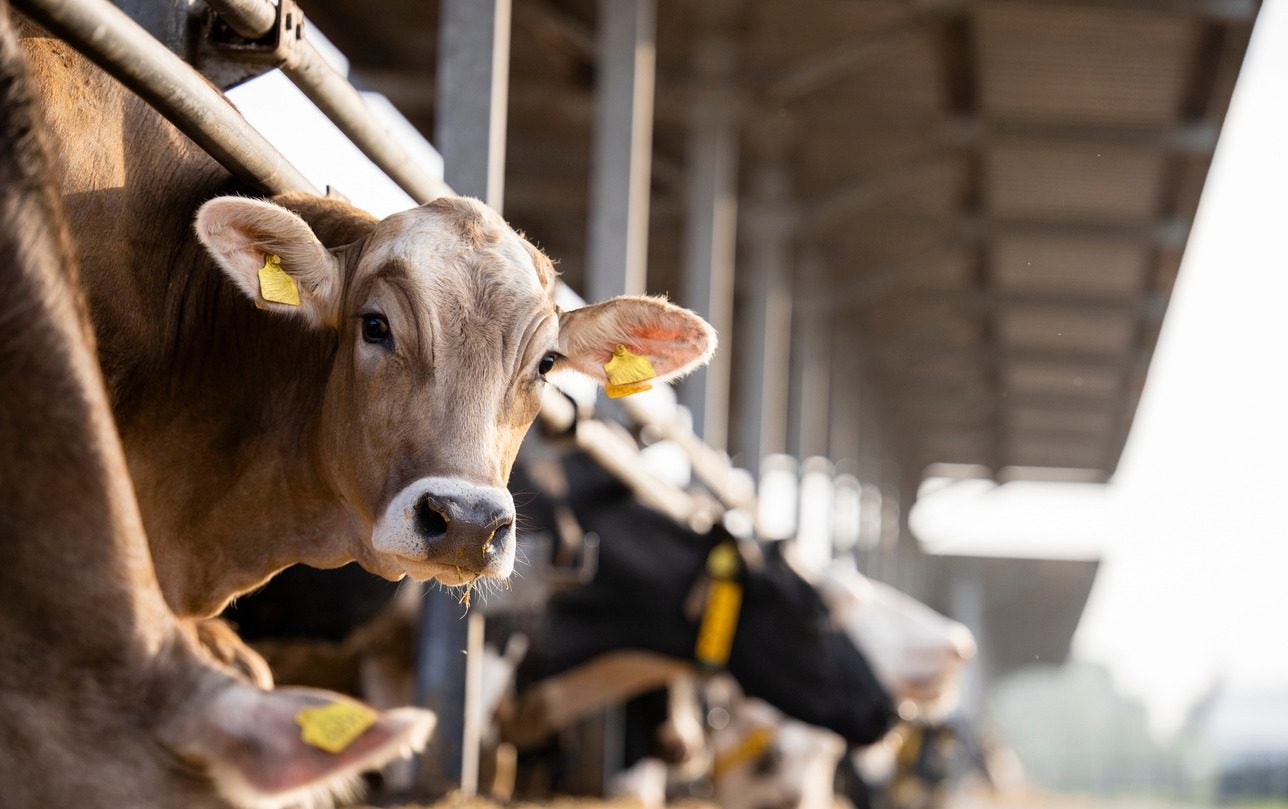
New data from the $70trn-backed FAIRR investor network reveals that absolute emissions from 20 of the world’s largest meat and dairy companies rose by 3.28% between 2022 and 2023.
In light of the findings, the investor group has called for an “urgent” policy focus on accelerating climate action across the global food and agriculture industry ahead of the upcoming COP28 Climate Summit.

Discover B2B Marketing That Performs
Combine business intelligence and editorial excellence to reach engaged professionals across 36 leading media platforms.
Prime offenders include Hormel Foods and New Hope Liuhe, suppliers to household names such as Walmart and McDonald’s, respectively.
Hormel Foods told Just Food the US manufacturer has “taken considerable steps to elevate [their] carbon reduction efforts”, highlighting their absolute reduction in Scope 1 emissions and a significant decrease in Scope 2 emissions, using location-based emissions and significant procurement of renewable energy.
FAIRR also found only 20% of the 20 companies have net zero targets approved by the Science-Based Targets Initiative (SBTi).
In one small glimmer of hope for investors, 40% of the 20 companies (eight firms) are now publicly reporting Scope 3 emissions, with WH Group and Tyson Foods disclosing all scopes for the first time this year.

US Tariffs are shifting - will you react or anticipate?
Don’t let policy changes catch you off guard. Stay proactive with real-time data and expert analysis.
By GlobalDataTyson Foods, WH Group and Danone, among others, also disclosed a fall in annual emissions. However, their progress was negated by rises from other meat and dairy giants.
Jeremy Coller, chair and founder of the FAIRR Network, said: “The failure of leading meat and dairy companies to reduce emissions underlines the urgent need for more policy focus on the food and agriculture sector. Food system emissions deserve a place at the top of the table, alongside energy and transport, as they represent an estimated third of greenhouse gas emissions and 40% of methane.”
“Investors hope the first-ever publication of a food and agriculture roadmap at COP28 this month will catalyse the transition to 1.5 degrees and a more sustainable food system.”
In March, the same investor coalition found that the world’s largest meat and dairy companies are likely to lose almost $24bn in pre-tax earnings by the end of the decade due to climate-related cost rises – a result that is predicted to push half of livestock giants to operating losses by 2030.
A 2022 GlobalData poll, however, found nearly two-thirds (59.5%) of 79 respondents across its network of B2B websites still never consider buying plant-based meats as an alternative to animal meat. Around a quarter (26.6%) reported they sometimes consider it, while only 13.9% said it was always a consideration.
From the Just Food archive, November 2022: The world’s largest food companies have gone backwards on net zeroOur signals coverage is powered by GlobalData’s Thematic Engine, which tags millions of data items across six alternative datasets — patents, jobs, deals, company filings, social media mentions and news — to themes, sectors and companies. These signals enhance our predictive capabilities, helping us to identify the most disruptive threats across each of the sectors we cover and the companies best placed to succeed.


